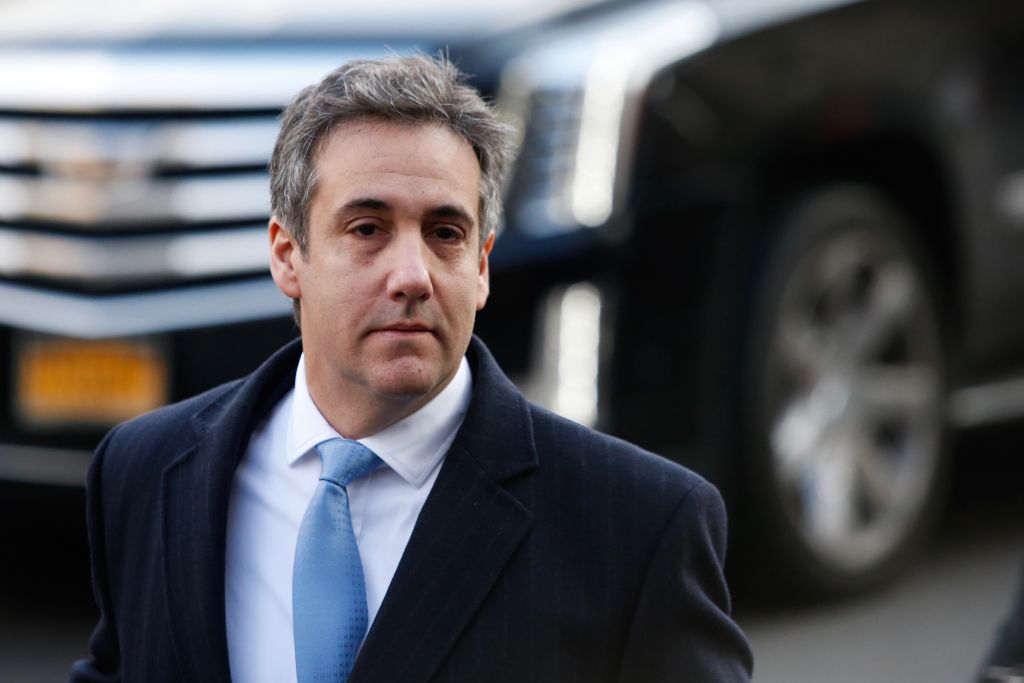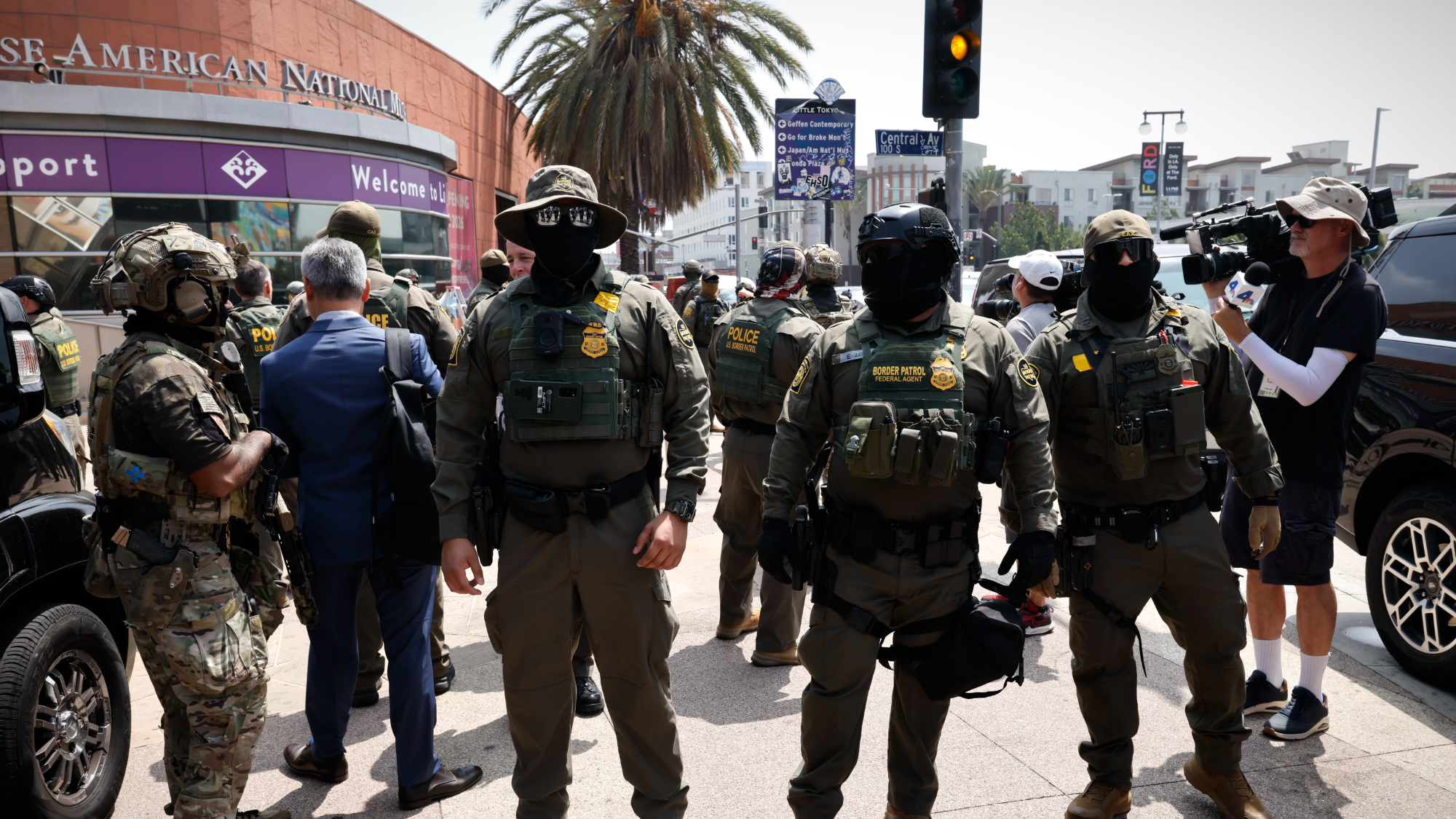Cohen says Trump is 'fixated' with Putin, saw 2016 campaign as a 'branding opportunity' to expand into Russia


A free daily email with the biggest news stories of the day – and the best features from TheWeek.com
You are now subscribed
Your newsletter sign-up was successful
President Trump "never thought he was going to win" the 2016 election, Michael Cohen, his former personal attorney and fixer, said on Tuesday, and he only entered the presidential race because he saw it as "a branding opportunity in order to expand worldwide."
Cohen revealed this during an interview with MSNBC's Rachel Maddow about his new book, Disloyal: A Memoir, which details his time working for Trump. In Disloyal, Cohen writes that Trump spent much of his 2016 campaign "sucking up to the Russians," because he wanted to be able to borrow money from people close to Russian President Vladimir Putin. Because Trump expected to lose the election, Cohen claimed, he wanted to keep all options open for the Trump Organization, including building Trump Tower Moscow.
Throughout the 2016 campaign, Trump falsely denied having any links to Russia. Trump had been "looking to do a project in Russia for many, many years, even prior to my joining the Trump Organization in 2007," Cohen told Maddow. "He's fixated on the wealth of Vladimir Putin and all of the opportunities that come with it."
The Week
Escape your echo chamber. Get the facts behind the news, plus analysis from multiple perspectives.

Sign up for The Week's Free Newsletters
From our morning news briefing to a weekly Good News Newsletter, get the best of The Week delivered directly to your inbox.
From our morning news briefing to a weekly Good News Newsletter, get the best of The Week delivered directly to your inbox.
Trump not only "never thought he was going to win" in 2016, he "actually didn't want to win," Cohen said. "This was supposed to be, and it's how he started it, the greatest political infomercial in the history of politics. If you take that line and you add to it the Trump Tower Moscow project you'll understand that this was a branding deal, that's all that the presidential campaign started out as, this was a branding opportunity in order to expand worldwide. There's only one problem: He won." Catherine Garcia
A free daily email with the biggest news stories of the day – and the best features from TheWeek.com
Catherine Garcia has worked as a senior writer at The Week since 2014. Her writing and reporting have appeared in Entertainment Weekly, The New York Times, Wirecutter, NBC News and "The Book of Jezebel," among others. She's a graduate of the University of Redlands and the Columbia University Graduate School of Journalism.
-
 House votes to end Trump’s Canada tariffs
House votes to end Trump’s Canada tariffsSpeed Read Six Republicans joined with Democrats to repeal the president’s tariffs
-
 Bondi, Democrats clash over Epstein in hearing
Bondi, Democrats clash over Epstein in hearingSpeed Read Attorney General Pam Bondi ignored survivors of convicted sex offender Jeffrey Epstein and demanded that Democrats apologize to Trump
-
 Are Big Tech firms the new tobacco companies?
Are Big Tech firms the new tobacco companies?Today’s Big Question Trial will determine if Meta, YouTube designed addictive products
-
 House votes to end Trump’s Canada tariffs
House votes to end Trump’s Canada tariffsSpeed Read Six Republicans joined with Democrats to repeal the president’s tariffs
-
 Bondi, Democrats clash over Epstein in hearing
Bondi, Democrats clash over Epstein in hearingSpeed Read Attorney General Pam Bondi ignored survivors of convicted sex offender Jeffrey Epstein and demanded that Democrats apologize to Trump
-
 El Paso airspace closure tied to FAA-Pentagon standoff
El Paso airspace closure tied to FAA-Pentagon standoffSpeed Read The closure in the Texas border city stemmed from disagreements between the Federal Aviation Administration and Pentagon officials over drone-related tests
-
 Judge blocks Trump suit for Michigan voter rolls
Judge blocks Trump suit for Michigan voter rollsSpeed Read A Trump-appointed federal judge rejected the administration’s demand for voters’ personal data
-
 US to send 200 troops to Nigeria to train army
US to send 200 troops to Nigeria to train armySpeed Read Trump has accused the West African government of failing to protect Christians from terrorist attacks
-
 Grand jury rejects charging 6 Democrats for ‘orders’ video
Grand jury rejects charging 6 Democrats for ‘orders’ videoSpeed Read The jury refused to indict Democratic lawmakers for a video in which they urged military members to resist illegal orders
-
 Judge rejects California’s ICE mask ban, OKs ID law
Judge rejects California’s ICE mask ban, OKs ID lawSpeed Read Federal law enforcement agents can wear masks but must display clear identification
-
 Lawmakers say Epstein files implicate 6 more men
Lawmakers say Epstein files implicate 6 more menSpeed Read The Trump department apparently blacked out the names of several people who should have been identified
